- Home
- Catherine Coulter
The Cove Page 2
The Cove Read online
Page 2
She imagined her aunt wanted to hear everything, but she wasn’t pushing. Sally was immensely grateful for that.
“I’ve often wondered what kind of woman you’d become,” Amabel said. “Looks to me like you’ve become a fine one. This mess—and that’s what it is—it will pass. Everything will be resolved, you’ll see.” She was silent a moment, remembering the affection she’d felt for the little girl, that bone-deep desire to keep her close, to hug her until she squeaked. It surprised her that it was still there. She didn’t like it, nor did she want it.
“Careful of leaning on that end of the table, Sally. Purn Davies wanted to fix it for me, but I wouldn’t let him.” She knew Sally wasn’t hearing her, but it didn’t matter, Amabel was just making noise until Sally got some of that brandy in her belly.
“This tea’s something else, Amabel. Strange, but good.” She took another drink, then another. She felt warmth pooling in her stomach. She realized she hadn’t felt this warm in more than five days.
“You might as well tell me now, Sally. You came here so you could protect your mama, didn’t you, baby?”
Sally took another big drink of the tea. What could she say? She said nothing.
“Did your mama kill your papa?”
Sally set down her cup and stared into it, wishing she knew the truth of things, but that night was as murky in her mind as the tea in the bottom of her cup. “I don’t know,” she said finally. “I just don’t know, but they think I do. They think I’m either protecting Noelle or running because I did it. They’re trying to find me. I didn’t want to take a chance, so that’s why I’m here.”
Was she lying? Amabel didn’t say anything. She merely smiled at her niece, who looked exhausted, her face white and pinched, her lovely blue eyes as faded and worn as an old dress. She was too thin; her sweater and slacks hung on her. In that moment her niece looked very old, as if she had seen too much of the wicked side of life. Well, it was too bad, but there was more wickedness in the world than anyone cared to admit.
She said quietly as she stared down into her teacup, “If your mama did kill her husband, I’ll bet the bastard deserved it.”
2
SALLY NEARLY DROPPED her cup. She set it carefully down. “You knew?”
“Sure. All of us did. The first time I ever got to see you was when she brought you home. I was passing through. That’s all our folks ever wanted me to do—pass through and not say much or show my face much, particularly to all their friends. Anyway, your mama showed up. She was running away from him, she said. She also said she’d never go back. She was bruised. She cried all the time.
“But her resolve didn’t last long. He called her two nights later and she flew back home the next day, with you all wrapped in a blanket. You weren’t even a year old then. She wouldn’t talk about it to me. I never could understand why a woman would let herself be beaten whenever a man decided he wanted to do it.”
“I couldn’t either. I tried, Aunt Amabel. I really tried, but she wouldn’t listen. What did my grandparents say?”
Amabel shrugged, thinking of her horrified father, staring at beautiful Noelle, wondering what the devil he would do if the press got wind of the juicy story that his son-in-law, Amory St. John, was a wife beater. And their mother, shrinking away from her daughter as if she had some sort of vile disease. She hadn’t cared either. She just didn’t want the press to find out because it would hurt the family’s reputation.
“They aren’t what you’d call real warm parents, Sally. They pretended not to believe that your papa had beat your mama. They looked at Noelle, saw all those bruises, and denied all of it. They told her she shouldn’t tell lies like that. Your mama was a real mess, arguing with them, pleading with them to help her.
“But then he called, and your mama acted like nothing had ever happened. You know what, Sally? My parents were mighty relieved when she left. She would have been a loser, a failure, a millstone around their necks if she’d left your father. She was special, a daughter to be proud of, when she was with him. Do you ever see your grandparents?”
“Three times a year. Oh, God, Aunt Amabel, I hated him. But now—”
“Now you’re afraid the police are looking for you. Don’t worry, baby. No one would know you in that disguise.”
He would, Sally thought. In a flash. “I hope not,” she said. “Do you think I should keep wearing the black wig here?”
“No, I wouldn’t worry. You’re my niece, nothing more, nothing less. No one watches TV except for Thelma Nettro, who owns the bed-and-breakfast, and she’s so old I don’t even know if she can see the screen. She can hear, though. I know that for a fact.
“No, don’t bother with the wig—and leave those contacts in a drawer. Not to worry. We’ll just use your married name. Here you’ll be Sally Brainerd.”
“I can’t use that name anymore, Amabel.”
“All right then. We’ll use your maiden name—Sally St. John. No, don’t worry that anyone would ever tie you to your dead papa. Like I said, no one here pays any attention to what goes on outside the town limits. As for anyone else, why no one ever comes here—”
“Except for people who want to eat the World’s Greatest Ice Cream. I like the sign out at the junction with that huge chocolate ice cream cone painted on it. You can see it a mile away, and by the time you get to it, your mouth is watering. You painted the sign, didn’t you, Amabel?”
“I sure did. And you’re right. People tell us they see that sign and by the time they get to the junction their car just turns toward The Cove. It’s Helen Keaton’s recipe, handed down from her granny. The ice cream shop used to be the chapel in the front of Ralph Keaton’s mortuary. We all decided that since we had Reverend Vorhees’s church, we didn’t need Ralph’s little chapel too.” She paused, looking into a memory, and smiled. “In the beginning we stored the ice cream in caskets packed full of ice. It took every freezer in every refrigerator in this town to make that much ice.”
“I can’t wait to try it. Goodness, I remember when the town wasn’t much of anything—back when I came here that one time. Do you remember? I was just a little kid.”
“I remember. You were adorable.”
Sally smiled, a very small smile, but it was a beginning. She just shook her head, saying, “I remember this place used to be so ramshackle and down at the heels—no paint on any of the houses, boards hanging off some of the buildings. And there were potholes in the street as deep as I was tall. But now the town looks wonderful, so charming and clean and pristine.”
“Well, you’re right. We’ve had lots of good changes. We all put our heads together, and that’s when Helen Keaton spoke up about her granny’s ice cream recipe. That Fourth of July—goodness, it will be four years this July—was when we opened the World’s Greatest Ice Cream Shop. I’ll never forget how the men all pooh-poohed the idea, said it wouldn’t amount to anything. Well, we sure showed them.”
“I’d say so. If the World’s Greatest Ice Cream Shop is the reason the town’s so beautiful now, maybe Helen Keaton should run for president.”
“Maybe so. Would you like a ham sandwich, baby?”
A ham sandwich, Sally thought. “With mayonnaise? Real mayonnaise, not the fat-free stuff?”
“Real mayonnaise.”
“White bread and not fourteen-vitamin seven-grain whole wheat?”
“Cheap white bread.”
“That sounds wonderful, Amabel. You’re sure no one will recognize me?”
“Not a soul.”
They watched a small, very grainy black-and-white TV while Sally ate her sandwich. Within five minutes, the story was on the national news broadcast.
“Former Naval Commander Amory Davidson St. John was buried today at Arlington National Cemetery. His widow, Noelle St. John, was accompanied by her son-in-law, Scott Brainerd, a lawyer who had worked closely with Amory St. John, the senior legal counsel for TransCon International. Her daughter, Susan St. John Brainerd, was not present.
“We go now to Police Commissioner Howard Duzman, who is working closely with the FBI on this high-profile investigation.”
Amabel didn’t know much of anything about Scott Brainerd. She had never met him, had never spoken to him until she had called Noelle and he answered the phone, identified himself, and asked who she was. And she’d told him. Why not? She’d asked him to have Noelle call her back. But Noelle hadn’t called her—not that Amabel had expected her to. If Noelle’s life depended on it, well, that would be different. She would be on the phone like a shot. But she hadn’t called her this time. Amabel wondered if Noelle would realize that Sally could be here. Would that make her call? She didn’t know. Actually, now it didn’t matter.
She reached out her hand and covered her niece’s thin fingers with hers. She saw where there had once been a ring, but it was gone now, leaving just a pale white mark in its place. She wondered for just a moment if she should tell Sally that she’d spoken to her husband. No, not yet. Maybe never. Let the girl rest for a while. Hopefully there would be time, but Amabel didn’t know. Actually, if she could, she would get rid of Sally this very minute, get her away from here before . . . No, she wouldn’t think about that. She didn’t really have a choice.
Everything would work out. Besides, what would it matter if Scott Brainerd did find out his wife was hiding out here? So she said nothing, just held Sally’s hand in hers.
“I’m awfully tired, Amabel.”
“I’ll bet you are, baby, I’ll just bet you are.”
Amabel tucked her in like she was her little girl in the small second bedroom. The room was quiet, so very quiet. She was asleep within minutes. In a few more minutes she was twisted in the covers, moaning.
There was so much daylight in that room, all of it pouring through the wide windows that gave onto an immaculate lawn stretching a good hundred yards to the edge of a copse of thick oak trees. The two men led her in, shoving her forward, nearly knocking her to her knees. They put their hands on her shoulders, forcing her to sit in front of his desk. He was smiling at her. He didn’t say a word until they’d left, quietly closing the door behind them.
He steepled his fingers. “You look pathetic, Sally, in those gray sweats. And just look at your hair, all stringy, and no makeup on your face, not even a touch of lipstick in honor of coming to see me. Next time I’ll have to ask them to do something with you before bringing you to me.”
She heard every word, felt the hurt that every word intended, but the comprehension quickly died, and she only shrugged, a tiny movement because it was so much work to make her shoulders rise and fall to produce a shrug.
“You’ve been with me now for nearly a week and you’re not a bit better, Sally. You’re still delusional, paranoid. If you’re too stupid to understand what those words mean, why, then, let me get more basic with you. You’re crazy, Sally, just plain crazy, and you’ll stay that way. No cure for you. Now, since I’ve got to look at you for a while longer, why don’t you at least say something, maybe even sing a little song, maybe a song you used to sing in the shower. Yes, I know you always sang in the shower. How about it?”
Oddly, even though the comprehension didn’t remain long in her brain, the viciousness of the words, the utter cruelty of them, hung on. She managed to rise, lean forward, and spit in his face.
He lunged around his desk as he swiped his hand over his face. He jerked her to her feet and slapped her hard, sending her reeling to the floor. The door to his office flew open, and the two men who’d brought her came banging through.
They were worried about him?
She heard him say, “She spit on me and then attacked me. Bring me three milligrams of Haldol. No pill this time. That should calm our poor little girl down.”
No. She knew that if they gave her any more of that stuff she’d die. She knew it, knew it. She staggered to her feet. She ran to those wide windows. She heard shouts behind her. She dove through the glass. For an instant she was flying, white shards of glass falling from her, letting her soar higher and higher above that beautiful lawn, flying away from the horror of this place, the horror of him. Then she wasn’t flying anymore. She heard screams and knew it was she who was screaming. Then she felt the pain drag at her, pulling her down, down, until there was blackness and beautiful nothingness.
* * *
But the screaming went on. That wasn’t right. She was unconscious, no longer screaming.
Another scream jerked her awake. Sally reared up in bed, straining to hear those screams. They’d been here, in The Cove, in Amabel’s house, not in her dream back there. She didn’t move, just waited, waited. A cat? No, it was human, a cry of pain, she knew it was. God knew, she’d heard enough cries of pain in the last year.
Who? Amabel? She didn’t want to move, but she made herself slip out from under the three blankets Amabel had piled on top of her at nine o’clock the previous evening. It was freezing in the small guest room and black as the bottom of a witch’s cauldron. Sally didn’t have a bathrobe, just her long Lanz flannel nightgown. Scott had hated her nightgowns, he hated . . . no, forget Scott. He truly didn’t matter, hadn’t mattered in a very long time.
The room was very dark. She made her way to the door and gently shoved it open. The narrow hallway was just as dark. She waited, waited longer, not wanting to hear that cry again, but knowing she would. It was a cry of pain. Perhaps there had been surprise in it. She couldn’t be sure now. She waited. It was just a matter of time. She walked in her sock feet toward Amabel’s bedroom.
She stumbled when she heard another cry, her hip hitting a table. This cry came from outside. She was sure of it. It wasn’t Amabel; thank God, she was safe. Amabel would know what to do.
What was it? She rubbed her hip as she set the table against the wall again.
Suddenly Amabel’s bedroom door flew open. “What’s going on? Is that you, Sally?”
“Yes, Amabel,” she whispered. “I heard someone cry out and thought it was you. What is it?”
“I didn’t hear a thing,” Amabel said. “Go back to bed, dear. You’re exhausted. It’s probably the leftovers of a bad dream. Just look at you, you’re white as the woodwork. You did have a nightmare, didn’t you?”
Sally nodded because it was the truth. But those screams had lasted, had gone on and on. They’d not been part of the dream, the dream that was a memory she hated, but that always came in her sleep when she was helpless against it.
“Go to bed. You poor baby, you’re shivering like a leaf. Go back to bed. Hurry now.”
“But I heard it twice, Amabel. I thought it was you, but it’s not. It’s coming from outside the house.”
“No, baby, there’s nothing out there. You’re so tired, so much has happened in the past few days I’m surprised you haven’t heard the Rolling Stones bawling at the top of their lungs. There’s nothing, Sally. It was a nightmare, nothing more. Don’t forget, this is The Cove, dear. Nothing ever happens here. If you did hear something, why it was only the wind. The wind off the ocean can whine just like a person. You’ll learn that soon enough. You didn’t hear anything. Trust me. Go back to bed.”
Sally went back to bed. She lay stiff and waiting, so cold she wondered whether the tears would freeze on her face if she cried. She could have sworn that she heard a door quietly open and close, but she didn’t have the guts to go see.
She would relax, then stiffen again, waiting to hear that awful cry. But there weren’t any more cries. Maybe Amabel was right. She was exhausted; she had been dreaming and it had been hideous and so very real. Maybe she was paranoid or psychotic or schizophrenic. They had called her all those things for six months. She wondered—if she saw the person actually cry out would that be a delusion? Just a fabrication of her mind? Probably. No, she wouldn’t think about that time. It made her hurt too much. She fell asleep again near dawn.
It was a dreamless sleep this time.
3
JAMES RAILEY QUINLAN had more energy than he’d had jus
t twenty minutes before. His body was humming with it. That was because she was here. He was sure of it now, he could feel her here. He’d always had these feelings—more than intuition. The feelings just came to him suddenly, and he had always followed them, ever since he was a kid. The time or two he hadn’t, he’d gotten himself into deep shit. Now he was out on a very long limb, and if he was wrong he’d pay for it. But he wasn’t wrong. He could feel her presence in this very charming and well-manicured little town.
Dreadful little place, he thought, so perfect, like a Hollywood set, just like Teresa’s hometown. He remembered having the same reaction, feeling the same vague distaste when he’d traveled to that small town in Ohio to marry Teresa Raglan, daughter of the local judge.
He pulled his gray Buick Regal into a well-marked parking place in front of the World’s Greatest Ice Cream Shop. There were two large plate-glass windows, painted all around with bright-blue trim. He could see small circular tables inside, with old-fashioned white wrought-iron chairs. Behind the counter an older woman was talking to a man while she scooped chocolate ice cream out of a carton set down into the counter. The front of the shop was painted a pristine white. It was a quaint little place, just like the rest of the town, but for some reason he didn’t like the looks of it.
He stepped out of the sedan and looked around. Next to the ice cream shop was a small general store with a sign out front in ornate type that could have come straight out of Victorian times: PURN DAVIES: YOU WANT IT—I SELL IT.
On the other side of the ice cream shop was a small clothing store that looked elegant and expensive, with that peculiar Carmel-like look that the rest of the buildings had. It was called Intimate Deceptions—a name that for James conjured up images of black lace against a white sheet or white skin.

 The Cove
The Cove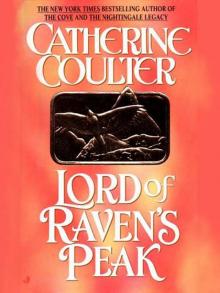 Lord of Raven's Peak
Lord of Raven's Peak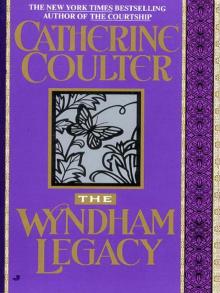 The Wyndham Legacy
The Wyndham Legacy The Strange Visitation at Wolffe Hall
The Strange Visitation at Wolffe Hall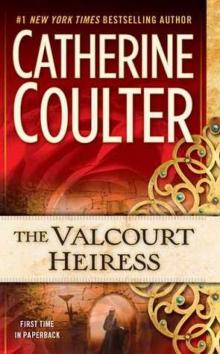 The Valcourt Heiress
The Valcourt Heiress Bombshell
Bombshell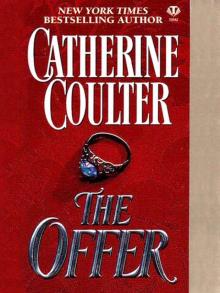 The Offer
The Offer The Edge
The Edge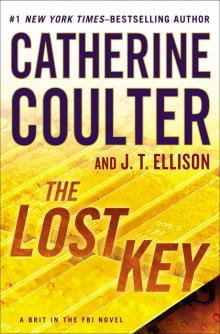 The Lost Key
The Lost Key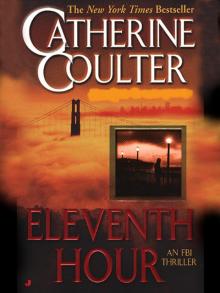 Eleventh Hour
Eleventh Hour Blindside
Blindside Devil's Daughter
Devil's Daughter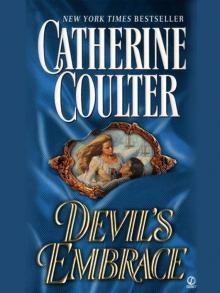 Devil's Embrace
Devil's Embrace Earth Song
Earth Song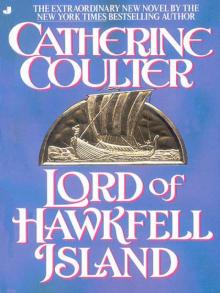 Lord of Hawkfell Island
Lord of Hawkfell Island Calypso Magic
Calypso Magic Lyon's Gate
Lyon's Gate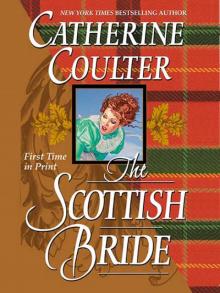 The Scottish Bride
The Scottish Bride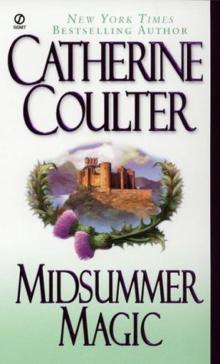 Midsummer Magic
Midsummer Magic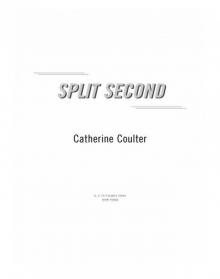 Split Second
Split Second Enigma
Enigma Blowout
Blowout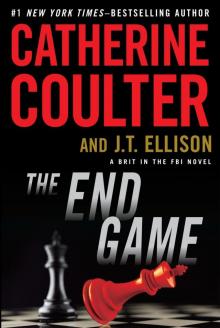 The End Game
The End Game Double Take
Double Take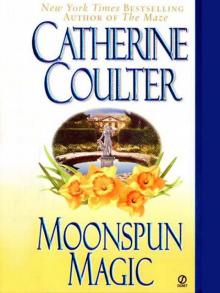 Moonspun Magic
Moonspun Magic The Courtship
The Courtship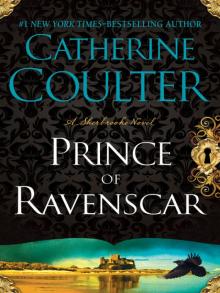 Prince of Ravenscar
Prince of Ravenscar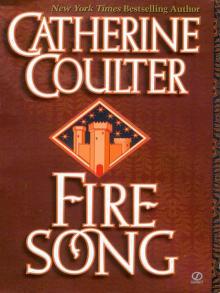 Fire Song
Fire Song Wizard's Daughter
Wizard's Daughter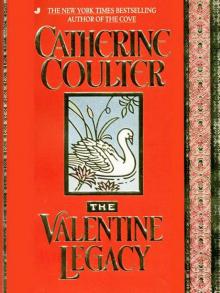 The Valentine Legacy
The Valentine Legacy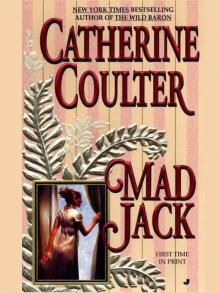 Mad Jack
Mad Jack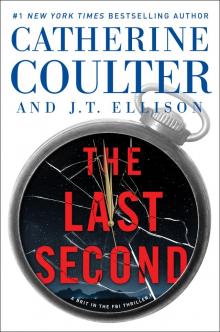 The Last Second
The Last Second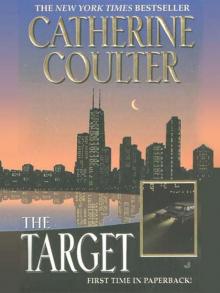 The Target
The Target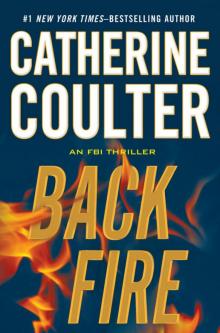 Backfire
Backfire Season of the Sun
Season of the Sun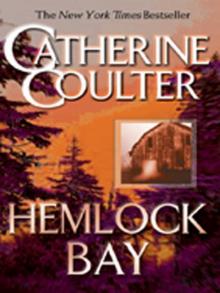 Hemlock Bay
Hemlock Bay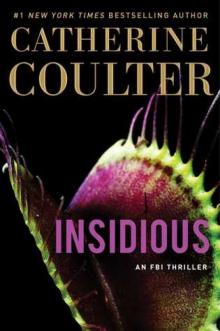 Insidious
Insidious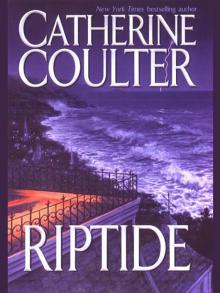 Riptide
Riptide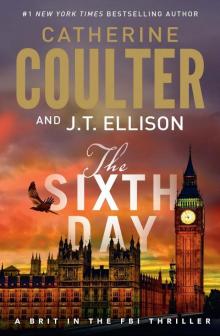 The Sixth Day
The Sixth Day Secret Song
Secret Song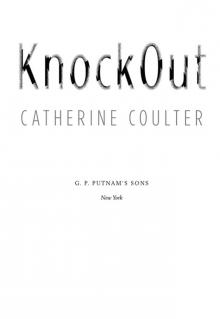 KnockOut
KnockOut Jade Star
Jade Star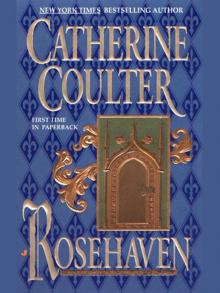 Rosehaven
Rosehaven The Hellion Bride
The Hellion Bride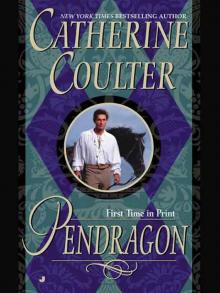 Pendragon
Pendragon Vortex
Vortex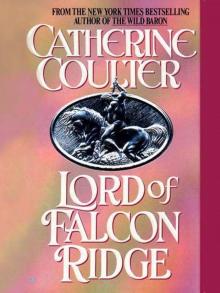 Lord of Falcon Ridge
Lord of Falcon Ridge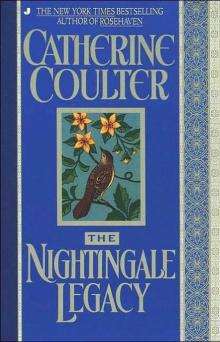 The Nightingale Legacy
The Nightingale Legacy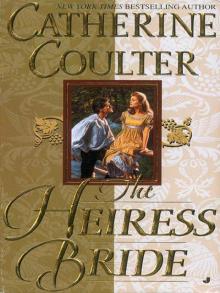 The Heiress Bride
The Heiress Bride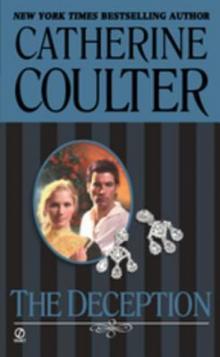 The Deception
The Deception The Maze
The Maze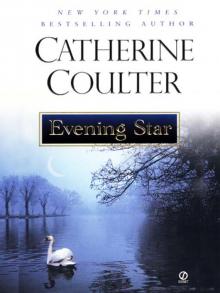 Evening Star
Evening Star Wild Star
Wild Star The Final Cut
The Final Cut Paradox
Paradox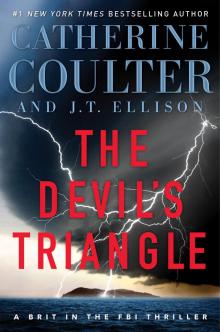 The Devil's Triangle
The Devil's Triangle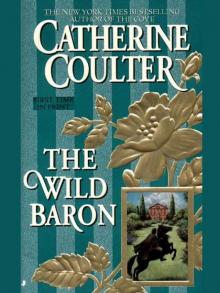 The Wild Baron
The Wild Baron Point Blank
Point Blank Labyrinth
Labyrinth Lord Deverill's Heir
Lord Deverill's Heir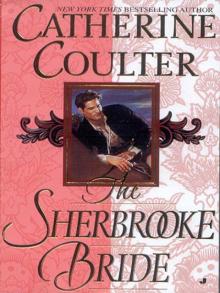 The Sherbrooke Bride
The Sherbrooke Bride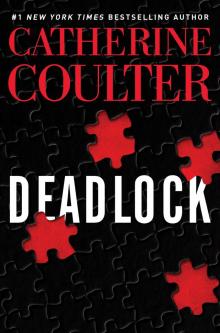 Deadlock
Deadlock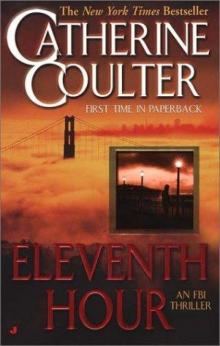 Eleventh Hour f-7
Eleventh Hour f-7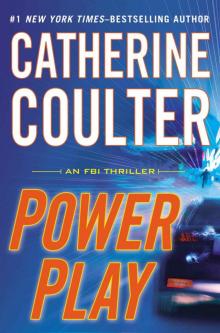 Power Play (An FBI Thriller)
Power Play (An FBI Thriller)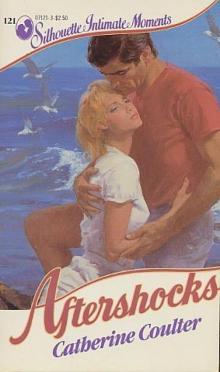 Aftershocks
Aftershocks Sherbrooke Twins tb-8
Sherbrooke Twins tb-8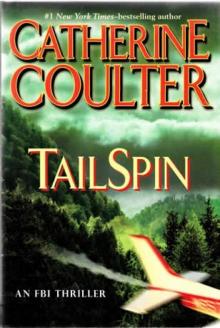 Tail Spin ft-12
Tail Spin ft-12 The FBI Thrillers Collection
The FBI Thrillers Collection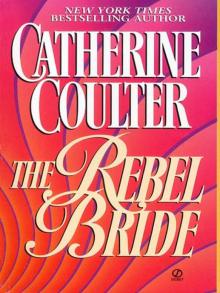 The Rebel Bride
The Rebel Bride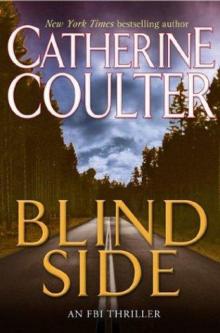 Blindside f-8
Blindside f-8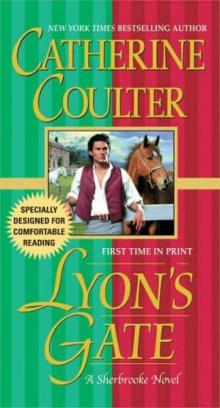 Lyons Gate tb-9
Lyons Gate tb-9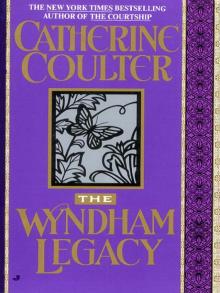 Wyndham Legacy
Wyndham Legacy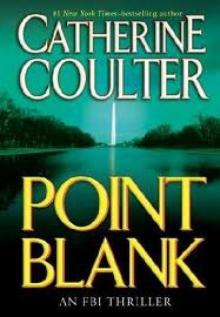 Point Blank f-10
Point Blank f-10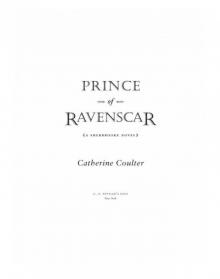 The Prince of Ravenscar
The Prince of Ravenscar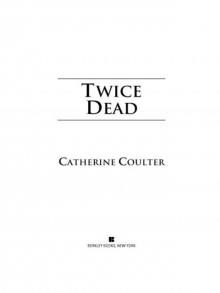 Twice Dead
Twice Dead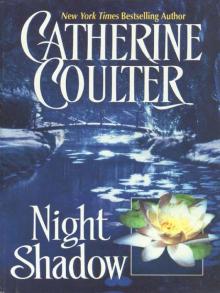 Night Shadow
Night Shadow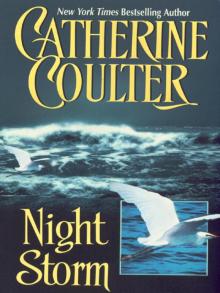 Night Storm
Night Storm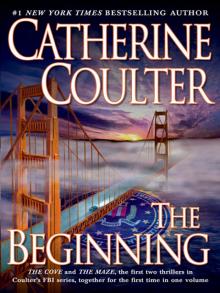 The Beginning
The Beginning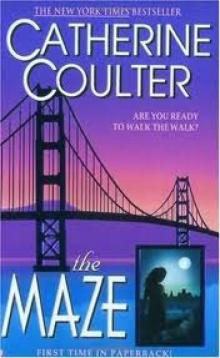 The Maze ft-2
The Maze ft-2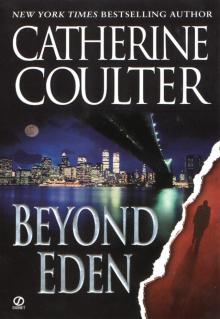 Beyond Eden
Beyond Eden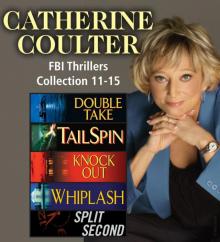 The FBI Thrillers Collection: Vol 11-15
The FBI Thrillers Collection: Vol 11-15 FALSE PRETENSES
FALSE PRETENSES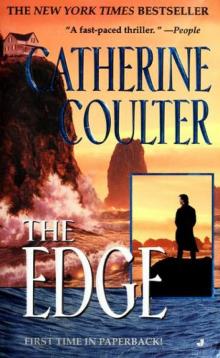 The Edge f-4
The Edge f-4 Bombshell (AN FBI THRILLER)
Bombshell (AN FBI THRILLER) The Ancient Spirits of Sedgwick House (Grayson Sherbrooke's Otherworldly Adventures Book 3)
The Ancient Spirits of Sedgwick House (Grayson Sherbrooke's Otherworldly Adventures Book 3)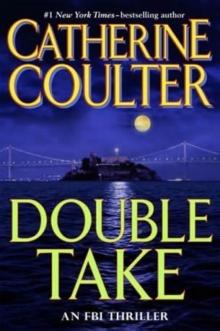 Double Take ft-11
Double Take ft-11 The Heir
The Heir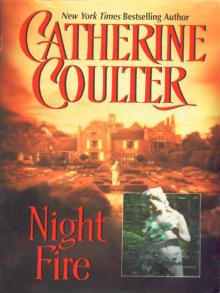 Night Fire
Night Fire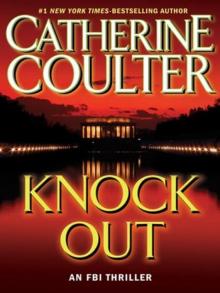 KnockOut ft-13
KnockOut ft-13 Hemlock Bay f-6
Hemlock Bay f-6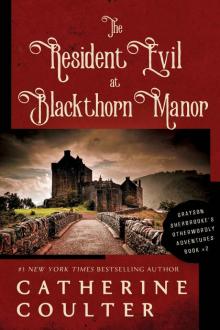 The Resident Evil at Blackthorn Manor (Kindle Single) (Grayson Sherbrooke's Otherworldly Adventures Book 2)
The Resident Evil at Blackthorn Manor (Kindle Single) (Grayson Sherbrooke's Otherworldly Adventures Book 2)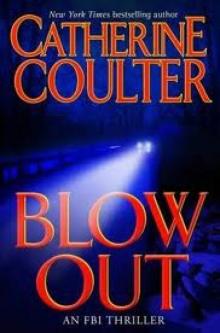 Blowout ft-9
Blowout ft-9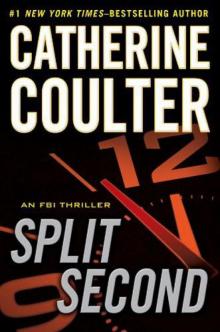 Split Second f-15
Split Second f-15 The Sherbrooke Series Novels 1-5
The Sherbrooke Series Novels 1-5 Impulse
Impulse Paradox (An FBI Thriller Book 22)
Paradox (An FBI Thriller Book 22)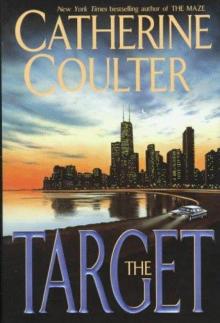 The Target f-3
The Target f-3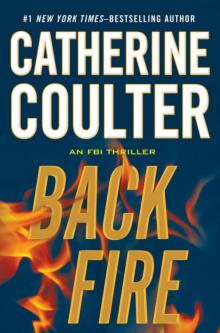 Backfire fst-16
Backfire fst-16 Born To Be Wild
Born To Be Wild Wizards Daughter tb-10
Wizards Daughter tb-10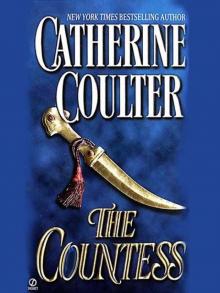 The Countess
The Countess